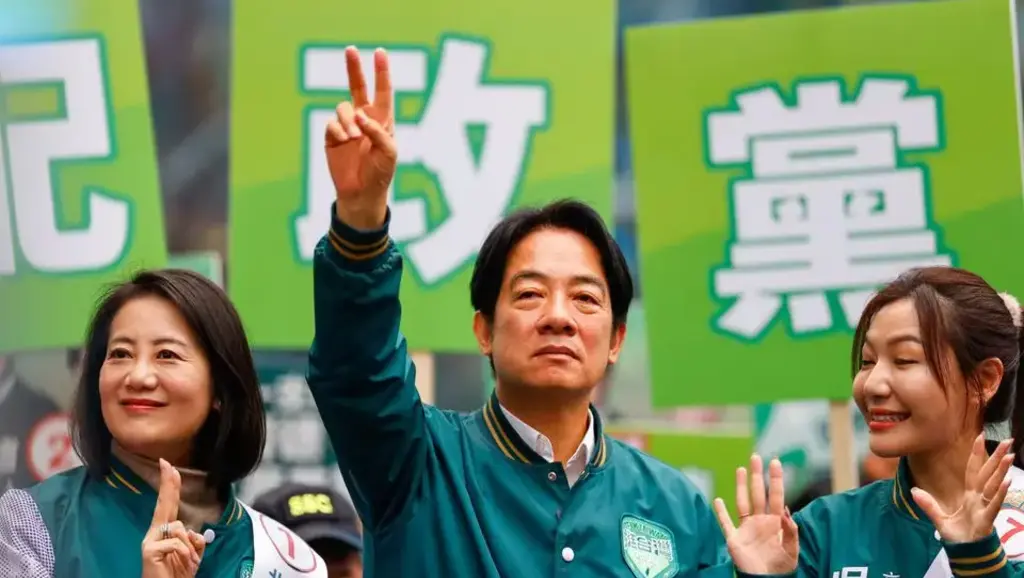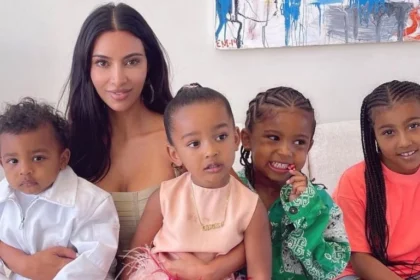Lai Ching-te won Taiwan’s widely watched presidential election with more than 40 percent of the vote, along with his running mate Hsiao Bi-khim – Taiwan’s former representative to the United States – won a total of more than 5 million votes.
Taiwan’s electoral system is based on first-past-the-post voting, awarding the victory to the presidential-VP pairing with the highest percentage of votes.

Turnout was put at more than 60 percent with some 19.5 million Taiwanese eligible to vote.
A favorite to succeed incumbent President Tsai Ing-wen, who is due to step down at the end of her second consecutive term in May, Lai’s win was in line with previous forecasts.
In an election framed as a choice between “peace and war” by China, which deems the DPP’s governance as “incompatible” with cross-strait peace, Lai’s victory comes at a crucial moment amid rising tensions between Taipei and Beijing.
Claiming the island as part of its territory, China has doubled down on the rhetoric that the country’s “reunification” with Taiwan is inevitable ahead of the election.
Lai, known by his English name William Lai, also serves as the chairman of the DPP.
A former physician, Lai entered politics in 1998 by becoming a legislator, a position he held for more than a decade.
He was then elected mayor of Tainan, a city in southern Taiwan, in 2010.
In 2017, Lai joined Tsai’s government after he was appointed premier and held the position until 2019 when he paired with Tsai as she ran for her second term in office.
Lai was sworn in as vice president in 2020 when Tsai won the presidential election.
Labeled a separatist by Beijing, the winner in Taiwan’s presidential race has promised to stick to Tsai’s policy of maintaining the status quo, which avoids open declarations of independence while rejecting China’s sovereignty claims.
Lai has said he hopes for a reopening of dialogue between China and Taiwan following almost eight years of Beijing’s near-complete refusal to communicate with leaders of the self-governing island.
But he also pledged to build up the island’s military defense, indicating that he harbors no illusions.
Warning against continued DPP rule, China has upped the pressure on Taiwan ahead of elections by flying balloons in the Taiwan Strait and threatening trade measures against Taipei, which accused Bejing of “economic coercion”.
“He [Lai] will carry on Tsai’s China approach: any dialogue with Beijing must be held with mutual respect and on an equal basis,” said Chang Chun-hao, professor of political science at Tunghai University in Taiwan.
“The bottom line remains Taiwan’s sovereignty which they [Lai and the DPP] seek to guarantee by rejecting the 1992 consensus,” Chang said.
The 1992 consensus refers to a tacit understanding between the Kuomintang (KMT) – which governed Taiwan at the time – and the Chinese Communist Party that both sides of the Taiwan Strait acknowledge that there is “one China”, with each side having its interpretation of what “China” means.
“Lai is looking to maintain the status quo … which [for the DPP] means China and Taiwan are two separate, sovereign nations,” said Chen Fang-yu, assistant professor of political science at Soochow University in Taiwan.
While the tone for relations between Taiwan and China will partly be determined by Saturday’s outcome, the upcoming presidential election in the US will also play a huge role.
“The 2024 US election is also crucial to cross-strait relations, whether it be Biden’s re-election or Trump’s return to power … this will play a big part in geopolitics between the US, China and Taiwan,” Chang said.




